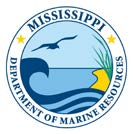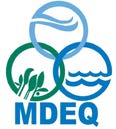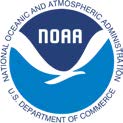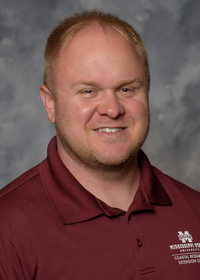Mississippi Coastal Cleanup - Volunteer's Handbook
WELCOME TO THE MISSISSIPPI COASTAL CLEANUP!
Annually since 1988, volunteers just like you have been making a difference by removing tons of marine debris from our Mississippi coastlines. The Mississippi Coastal Cleanup is a partnership between the Mississippi State University Extension Service and the Mississippi Marine Debris Task Force. Our purpose is to facilitate cleanup events like this, while also raising awareness of the impacts of marine debris on the environment and providing information on ways we can reduce marine debris.
Marine debris is human-made litter, scattered across the entire ocean, that is swept along by currents and accumulates most noticeably along coastlines. It is estimated that by the year 2050, there will be more plastic weight in the ocean than fish weight. With those huge quantities of marine debris in the oceans, it’s easy to see that marine debris poses a threat to us all. Everything—from the environment to the economy, from fishing to human health and safety, from microscopic plankton to the giant blue whale—is impacted by the abundance of marine debris in the ocean.
The purpose of this handbook is to help guide you through all aspects of the Mississippi Coastal Cleanup; refer to it if you have any questions throughout the cleanup. Thank you for volunteering to make a difference. This day is much more than just picking up trash. It’s an opportunity for a community to join together and inspire others to help take care of our coastal environments!
WE RECOMMEND YOU BRING:
- Water (preferably in a reusable bottle!)
- Closed-toe shoes
- Hat
- Sunscreen
- Gloves
- An enthusiastic attitude!
WE WILL PROVIDE:
- Data cards and clipboard
- Pencils
- Bags
- Surgical gloves
- First aid
- Hand sanitizer
Volunteer Instructions
- The first thing to do upon arrival is identify your site captain and sign in.
- You must be 18 years or older to sign in. An adult must accompany minors. If you are in a group, only one person needs to sign in for the group.
- Volunteers should work in pairs or small groups.
- Each pair or group of volunteers will receive 1 data card, 1 pencil, 1 clipboard, gloves, 1 black trash bag, and 1 white trash bag.
- You will be separating recyclables. White bags are for rigid plastic items that are to be recycled. Black trash bags are for general debris items. See the Trash Separation section for more details on how to separate trash.
- When you are finished, bring the white bags of rigid plastic to the recycling coordinator. Leave the black bag of debris at your site’s designated location as identified by your site captain.
- Turn in your data cards to your site captain. This is required to receive your lunch cards. (Lunch will be provided 11 a.m.–1 p.m.)
Data Collection
- You need to fill out a data card for your first bag of trash only.
- When filling out the data form, document all trash found, including the recyclables you have separated into the white bags, until your first black trash bag is filled.
- Once your first black trash bag is filled, you may stop recording.
- Keep your data cards until you are finished. When you are done, fill out the total number of trash bags your team has filled during your cleanup.
- Be sure to include on the front of the data card:
- Your cleanup site name
- Your zone/county
- Number of people working in your group
- Be sure to include on the back:
- Tally and total count of items found for first bag of trash filled per group
- Total number of black trash bags filled
- Total number of white trash bags filled
- Estimated weight of all trash bags
- Any dead/injured animals found
Ask your site captain if you have any questions about data collection.
Trash Separation
- 1 PET
- 2 HDPE
- 4 LDPE
- 5 PP
- 6 PS
Examples of Plastic Items
soda bottles
water bottles
mouthwash bottles
cleaner bottles
laundry detergent bottles
milk jugs
medicine bottles
pill bottles
shampoo bottles
soap bottles
juice bottles
condiment bottles
yogurt containers
plastic cups
plastic cutlery and plates
plastic lids
plastic buckets
plastic trays
plastic funnels
plastic tubes
plastic containers
plastic auto parts
plastic molds
plastic beach toys
plastic furniture
If you have any questions about separating recyclables, don’t hesitate to ask your site captain or the recycling coordinator, who will be at the recycle drop-off station.
Lunch Sites
Lunch is from 11 a.m. to 1 p.m. Lunch cards are required to receive lunch. You will receive lunch cards from your site captain after you have completed your cleanup.
HARRISON COUNTY
Barksdale Pavilion at Jones Park
Sponsored by RPM Pizza and the Gulfport Rotary Club
HANCOCK COUNTY
Washington Street Pavilion Burger Cookout
Sponsored by Office of Congressman Steven Palazzo and the Bay-Waveland Rotary Club
JACKSON COUNTY
MGCCC Jackson County Campus, Estuarine Education Center
Sponsored by The Shed Barbeque & Blues Joint
Prize Drawings
Prizes will be drawn at the lunch locations. Volunteers must be present at lunch sites during lunch hours to win. Lunch cards are the tickets for entry to the giveaway. To participate, volunteers must fill out the information on their lunch cards. This year’s prizes include kayaks, T-shirts, and more.
The Mississippi Coastal Cleanup Program annually engages thousands of volunteers, removes tons of trash, raises marine debris awareness, and educates people about marine debris prevention and impacts across the Mississippi coast. This program would not exist without sponsors and volunteers like you! Thank you for all your hard work and support!
If you have any other questions, please visit the Mississippi Coastal Cleanup Program website to access our frequently asked questions or to contact us.





Publication 3065 (04-23)
MASGP-17-016
By Eric Sparks, Assistant Extension Professor, Coastal Research and Extension Center, Emily Fischbach, master’s student, University of South Alabama, and Amanda Sartain, Extension Program Assistant, Coastal Research and Extension Center.
The Mississippi State University Extension Service is working to ensure all web content is accessible to all users. If you need assistance accessing any of our content, please email the webteam or call 662-325-2262.



